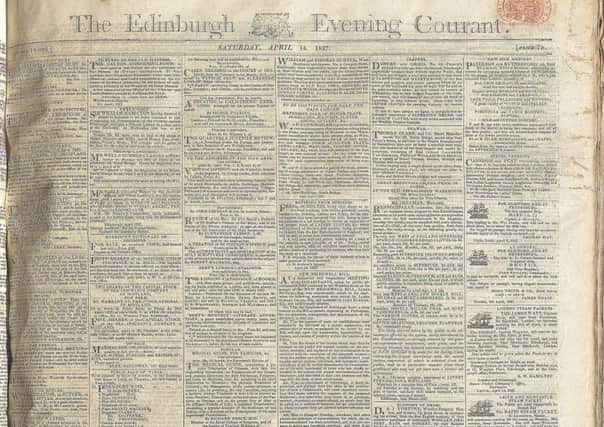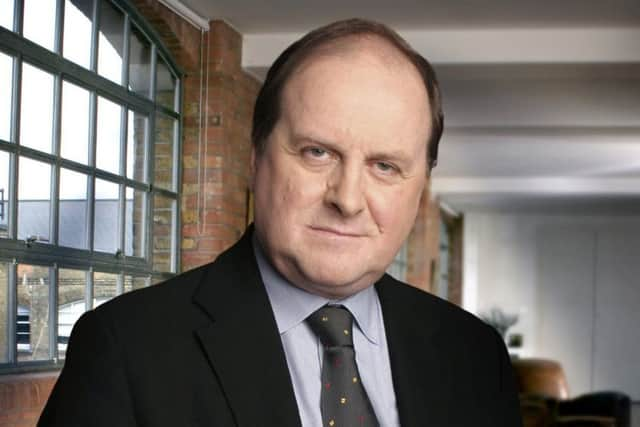Radio programme showcases 1827 copy of Edinburgh Evening Courant


Now one of Scotland’s most historic newspapers is set to be placed under the microscope as a radio documentary delves into the history of Edinburgh through the small ads found in its local news sheet.
Today programme presenter James Naughtie will showcase an 1827 copy of the Edinburgh Evening Courant in the latest edition of the Radio 4 show Classified Britain.
Advertisement
Hide AdAdvertisement
Hide AdProducer John Forsyth said it provides “a unique window” into life in the Scottish capital at the time.


“You can track the drive of everything, new technologies, engineering advancements, social changes, through what is being advertised in these classifieds,” he said.
“You can also see what is being displaced. If you look at the second-hand column, you see skills, trades products, items that are falling out of use for sale.”
The 14 April edition of the Courant includes a signed letter by a group of locals concerned about the extra taxation set to be levied against them to fund upgrades to the former Bridewell prison on Calton Hill.
Advertisement
Hide AdAdvertisement
Hide Ad“Inhabitants of Edinburgh will most cheerfully contribute their share towards the expense of the proposed Bridewell,” it states, “but otherwise, they know of no principle, rational, expedient or constitutional, on which they can be called on to submit to taxation for an establishment in whose concerns they are allowed neither influence or control.”
Forsyth added: “The Bridewell story is one that could have been written today. It is local people upset with the prospect of paying more money for a building housing criminals.
“It is not far from the current planning issues of today, it shows that while the reporting of the stories may have changed, the stories themselves have not.”
The Courant began publication on the Royal Mile in 1718, becoming one of the country’s first regional papers and counted Robinson Crusoe author Daniel Defoe among its former editors.
Advertisement
Hide AdAdvertisement
Hide AdIt later became the Scots Courant, but ceased publication following the establishment of the Edinburgh Evening News in 1873.
Other adverts include those for ships leaving Leith bound for Elsinore and St Petersburg, and products including “the finest” marmalade oranges, “very useful” Roman cement and “soapmakers’ effects”.
Forsyth added: “My favourite ad is for The Popular Medical Guide For Families. The contents summarised in the ad include ‘The Management of the various Attempts to destroy Life by poisoning etc’.”
“I can’t help but think that there must be an awful lot of Edinburgh or Scottish life contained in one ‘etc’.”
Advertisement
Hide AdAdvertisement
Hide Ad“The ad quotes an endorsement by a reviewer who says: ‘By attending to its instructions the clergyman or resident of a retired village may be enabled to do much good at small expense’.”
Classified Britain, Radio 4, Tuesday, 9.30am